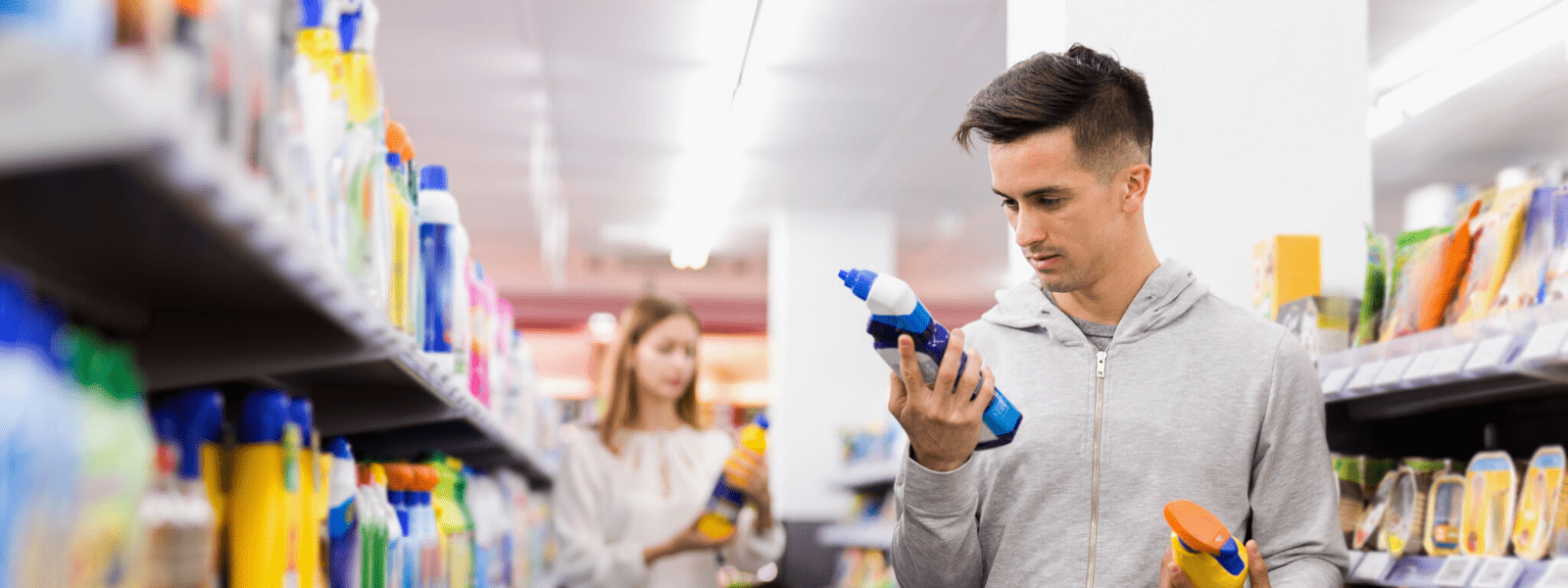Chemicals can be found pretty much everywhere these days—in cleaning products, cosmetics, clothing, agriculture, etc. With so many different applications, they really make our lives easier. However, chemicals can be extremely hazardous to both the environment and to humans if they are not used or disposed of properly. Chemical safety is crucial to avoiding dangerous accidents, and part of chemical safety is knowing the difference between household chemicals and industrial chemicals.
What is a Household Chemical?
Household chemicals are non-food chemicals that are commonly used in everyday cleaning, hygiene, or even pest control around the home. Common chemicals you might find in your home include:
- bleach
- ammonia
- paint thinner
- washing detergent
- air fresheners
- cosmetics
Household chemicals, like any chemical, can be very dangerous if not used properly. In fact, the CDC found that in 2019, poisonings were the leading cause of unintentional injury deaths, resulting in nearly 40% of all unintentional injury deaths. Some of the most dangerous substances are found in:
- solvents
- cleaners
- pesticides
- automotive care products
When using chemicals in the home, be sure to buy the correct product for the desired job and to read and follow the label instructions very carefully. If an accident occurs, get help from the Poison Control Center immediately.
What is an Industrial Chemical?
Industrial chemicals are produced in large quantities and can be applied in many industrial settings including:
- plastics
- adhesives
- solvents
- cosmetics
- cleaning products
Industrial products are defined as any chemical that isn’t:
- veterinary
- agricultural
- pharmaceutical
- therapeutic
- food-related
These substances may be used as ingredients in commercial products, or directly in production processes. Essentially, industrial compounds cover a broad spectrum of uses that is much larger than household compounds.
Differences between Industrial Chemicals and Household Chemicals?
Household and industrial products have a wide variety of differences. Mainly, they tend to vary in:
- size
- cost
- strength
With industrial chemicals being larger, higher in price, and stronger concentrates. Since household products do not need to be as strong as those needed for industrial purposes, they can be made with cheaper ingredients, thus making them cheaper in cost. Household chemicals also come in much smaller quantities than their industrial counterparts, because the amount of a product needed for an industrial job is much larger than that of a household job.
Have More Questions About Industrial Chemicals?
Contact the EcoLink, Inc. team here today to learn more about which chemicals might best fit your needs.
















